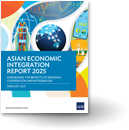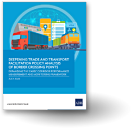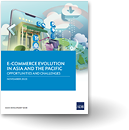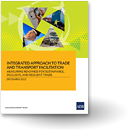Economic turbulence and the Indonesian economy
Unlike many other large economies, Indonesia has been able to ride out the recent global financial crisis with relatively few problems. This is particularly remarkable given that Indonesia is an open economy. Research has shown that openness makes an economy more susceptible to external shocks and large short-term capital movements. We argue that Indonesia’s resilience are due to several successful crisis mitigation measures that the government has put in place since the 1997 Asian financial crisis (AFC).
The 2008 Eurozone crisis faced a more resilient Indonesia
The global economic turbulence that resulted from the 2008 Eurozone crisis continues to affect both developing and developed countries. Since emerging economies such as Indonesia bounced back more quickly than others they are now being considered as a key engine of global growth.
This is not the first time Indonesia has faced major economic shocks. The impact of AFC fundamentally changed the pattern of Indonesia’s inflation and exchange rate. Between 1997 and 1998, Indonesia saw a sharp plunge in GDP, a spike in inflation, and markedly higher exchange rate volatility (See Highlighted in Figure 1). These sharp changes represent structural breaks in the economy.
Figure 1: GDP, Inflation, and Rupiah-Dollar Exchange Rate

Source: Indonesia Ministry of Finance
In an upcoming ADB working paper, we find that the global crisis, which would have affected Indonesia through the balance of payments channel, has had no direct impact on Indonesia’s economic growth.
When we break the balance of payments’ data into more detailed items, this conclusion does not change. No long-run relationship exists between Indonesia’s trade balance or the current account with growth. Also, short-run analysis shows that movements in the financial account and portfolio investment has no significant impact on growth.
Policies put in place since 1998 increased resilience
From a fiscal standpoint, there are several crisis prevention and mitigation measures that the government has introduced. These include the creation of the Coordination Forum for Financial System Stability (CFFSS) and the establishment of a Crisis Management Protocol (CMP). The two mechanisms are created to speed up the coordination and decision-making process in the face of financial crisis. The CFFSS is established as a forum where all financial regulators, particularly the fiscal authority and the monetary authority, can meet and make decisions on what to do in a crisis. On the other hand, the CMP regulates who should do what, when a crisis occurs. The forum meets regularly to assess the condition of the financial industry based on the report produced by each party.
From a monetary policy standpoint, effective policy coordination between the central bank and the government has had several important outcomes that have reduced exchange rate volatility in times of crises. These include better control of capital inflows, which is a key source of exchange rate volatility, and better channeling of flows to longer-term investment, particularly in infrastructure and productive capacity.
In addition to these two mechanisms, the composition of economic growth—where domestic investment and consumption contribute most to growth—has helped dampen the negative impact of lower foreign demand. Also, favorable demographic conditions have boosted domestic consumption.
Indonesia has a relatively young population. People aged between 20 and 50 dominate the population, resulting in a large and growing domestic labor force. 60% of the population consumes most of the goods and services produced domestically.
Conclusions
The combination of policies and domestic economic conditions have helped reduce the negative impact of global crisis on the Indonesian economy. These positive factors provide confidence that a prolonged global crisis would have a relatively modest impact on the economy.
Due to the country’s unique disposition, favorable economic conditions, and its capacity to withstand external shocks, Indonesia could be considered a “safe haven” for global investors concerned about weak growth prospects in advanced economies.




